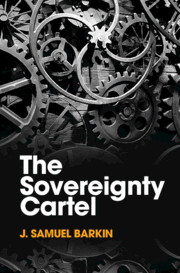9 - Conclusions
Published online by Cambridge University Press: 23 July 2021
Summary
Chapter 9 addresses the “So what?” question: what do we learn from studying sovereignty through a property rights lens? One key upshot of the argument is that changes in international patterns of economic regulation and use of force are not necessarily indicative of either the strength of or the content of claims of sovereign right. Sovereignty maintains its centrality in the international system not only (arguably not even primarily) through the practice of governance, but also through collusion to reinforce a normative structure of sovereign right. The chapter concludes with some thoughts about the “So what?” question for international relations theorists. For theorists of foreign policy the sovereignty cartel helps to explain deference by bigger states to the sovereign rights claims of smaller states when national interest would argue against such deference. For globalization theorists the cartel shows that globalization and sovereignty do not vary inversely on a unidimensional spectrum. For theorists of the social structure of the international system it highlights the often-overlooked agentive processes needed to maintain existing social structures rather than just agentive mechanisms for changing structures.
Keywords
- Type
- Chapter
- Information
- The Sovereignty Cartel , pp. 163 - 182Publisher: Cambridge University PressPrint publication year: 2021



